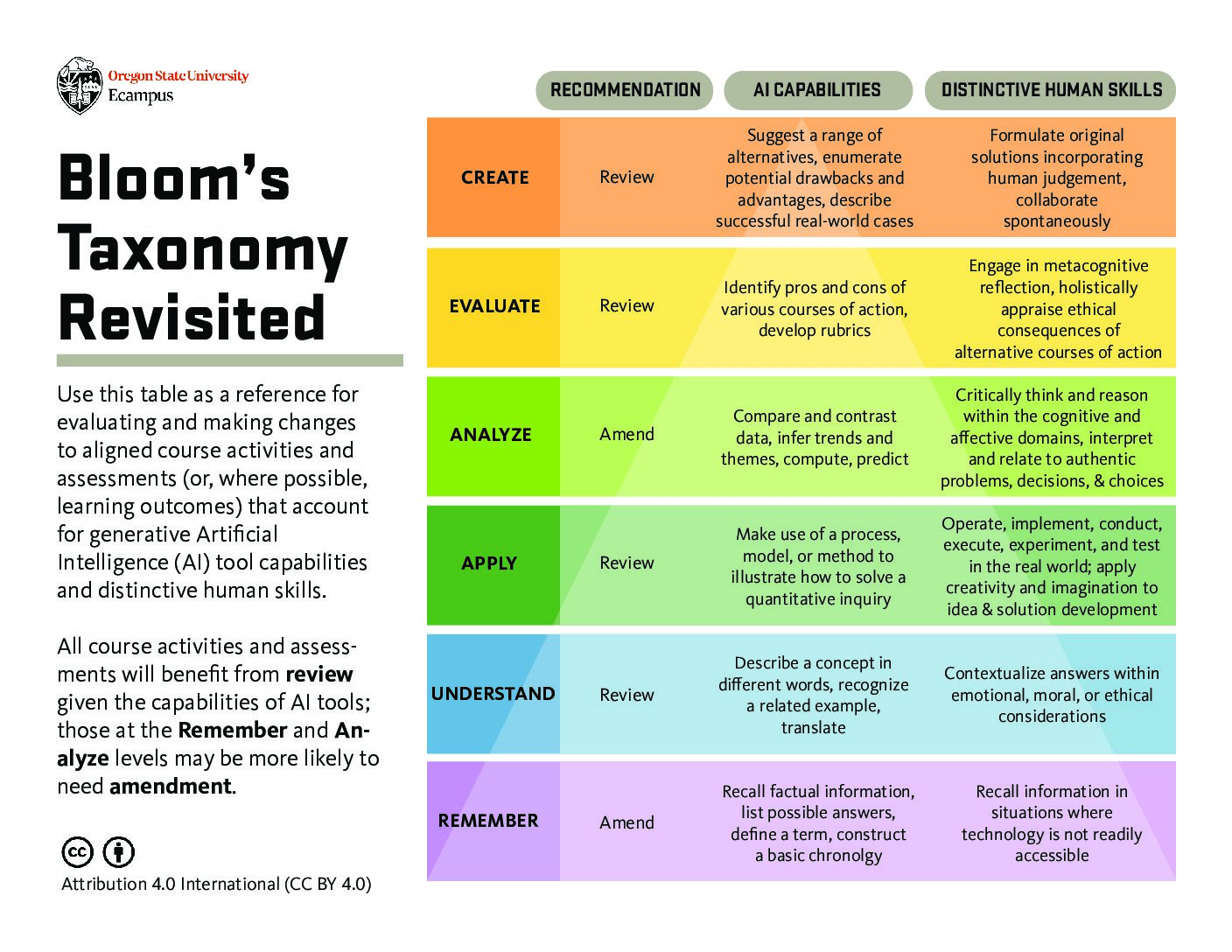
AI & Reflective Practice: Unpacking my Bags
In this webinar, organized by ePortfolios Australia, ePortfolios Ireland, and AAEEBL, Leticial Britos Cavagnaro (Stanford University) teaches about Riff, an AI powered reflection bot. Dr. Cavagnaro, teaches at the d.school in Stanford. The workshop begins with a simple activity to get an object that represents the last term. After the group shared, she highlighted that the word reflection is a “suitcase word” because people have a variety of meanings connected to it. Cavagnaro goes on to explain her definition of reflection focuses on three components: “whole body process” (noticing environment and feeling), “transforming experience into meaning,” and envisioning (looking forward, not just backward). Part of this reflective practice includes the use of generative AI (Riff) to ask questions that encourage reflection that follows this trajectory.
During this workshop, Cavagnaro sets some ground rules for AI use and notes that using it should “minimize the potential for harm.” Rule 1 focuses on understanding what the tool can and cannot do; in the case of Riff, it does not give advice or give factual information. Second is to be aware of the data being generated; it is only being collected by Cavagnaro at d.school and is not being used to train language AI. Rule 3 is that one does not need to answer the questions posed by Riff, but without enough context, Riff will be less useful.

I tried the tool as the workshop group did, and I found it to be interesting. As prompted, I answered questions about an achievement from the past term. In my case, I wrote about having my first research article published in a peer-reviewed journal. After answering questions that prompted me to note the most rewarding and challenging parts of the process, Riff pushed me most on envisioning, encouraging me to create actionable steps for future process. I indicated that I valued working with a colleague in this process, noting that my motivation was helped by our regular meetings and problem-solving during the revision stages. Riff prompted me to think about how I might determine a partner for future process, developing concrete steps to selecting a good partner with particular work habits and expertise that would complement my perceived strengths. I found this part of the reflection to be most thought-provoking. At any point, Riff has a feature that will summarize the “conversation,” so I selected to have a summary emailed to me.
In thinking of how I might use this tool, I immediately saw it as an opportunity to deepen my reflective practice, but I also saw it as an opportunity to help students. Specifically, I have been thinking about reflective prompts for internships. When would be a good time to integrate and how often? In the beginning, it could help to establish the internship environment and also provide a road map for making the most of the experience by helping students consider paths to explore or ways to address perceived short-comings of the experience. If a student reflects on an obstacle to learning, Riff may help them brainstorm a way through the problem. This seems particularly useful at the beginning (or middle) of the experience because it could guide students to improve their specific experience. I think focusing on the positives of the experience may be best toward the end of the internship, highlighting a deeper understanding of the ways that course work informs a real-life work environment. This would be especially good for students to synthesize. To expand the use of this tool, I would consider suggesting using it throughout a program — maybe a beginning, middle, end model (maybe 100-level, then early 300-level, and late 400-level course). This could function for any major because it would help students effectively reflect across the years, making learning visible, and creating a more structured reflective process across the degree. Since Riff is still in beta testing, we cannot put into effect immediately, but I have asked for access to try it.

